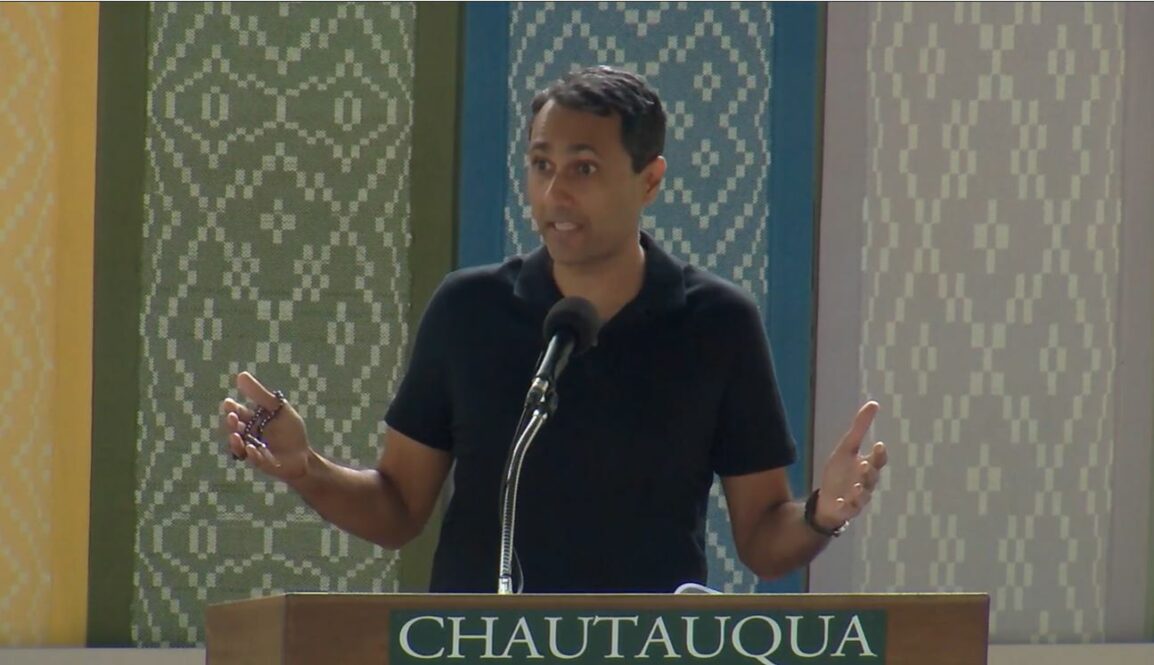
Imagine a human craft whose sole purpose is enchantment. The magic of the word.
The allure of the plot line. Euphony woven into tale, from the aesthetic of each syllable to the intricacies and intrigues of a good story. We think, experience, make sense of the world in narrative. Artists who are able to spin fiction are revered writers, whose forebears were oral storytellers. We passed myths down through generations before they were written, religious and literary traditions, and whole civilizations formed in the process.
This is one reason, of numerous, that the attack on Salman Rushdie at the Chautauqua Institution earlier this month hit us on an emotive level as profane. It was a violation, abject and violent, of a contemporary literary master. It was an act of profanity against a core democratic freedom – expression – an essential element in the process of his craft. That the setting was an amphitheater dedicated to the exchange of diverse ideas toward the development and nurturing of excellent character added salt to the open wound. Chautauqua is a kindred partner in our shared effort to build bridges and uplift the American spirit – we know and treasure its leadership, including Michael E. Hill, Chautauqua’s president, and have found inspiration and shared our own stories from its platform.
Whatever one’s view of Rushdie’s literary prowess or his choice of topics, no one should be savagely attacked, and no one should be made to have lived over 30 years under threat of death. It’s surreal to consider that when the Ayatollah Ruhollah Khomeini marked Rushdie with his infamous 1989 fatwa, Rushdie’s attacker didn’t yet exist. It would be nearly a decade before Hadi Matar’s birth. The power of words, sadly, can also be wielded for great evil.
Going back to one of the more recent essays of Rushdie’s from the The New York Times last year, I remembered how his magical realism enchanted me through both his better known novels, and even the lesser known, like one of my own favorites, The Ground Beneath Her Feet. In the essay, Rushdie recounts what it was like to fall in love with stories as a child growing up in what was then Bombay:
When I first heard the tale in the great epic Mahabharata about how the great god Indra churned the Milky Way, using the fabled Mount Mandara as his churning stick, to force the giant ocean of milk in the sky to give up its nectar, “amrita,” the nectar of immortality, I began to see the stars in a new way. In that impossibly ancient time, my childhood, a time before light pollution made most of the stars invisible to city dwellers, a boy in a garden in Bombay could still look up at the night sky and hear the music of the spheres and see with humble joy the thick stripe of the galaxy there. I imagined it dripping with magic nectar. Maybe if I opened my mouth, a drop might fall in and then I would be immortal, too.
Share
Related Articles
American Civic Life
American Civic Life
A Muslim Chaplain Uses Storytelling as A Tool, One Inspired By the Prophet Muhammad
American Civic Life

Eboo Patel speaking at the Chautauqua Institution on August 22, 2022. Video screen grab
There is something of that childhood wonder in each of us, I believe. And my faith teaches me that it is never too late to enliven it in even the hardest of souls or the stoniest of hearts. Appreciation and reverence for the story of the “other” is an element of interfaith cooperation. Day in and day out, we see firsthand the power of narrative to build bridges, that same power we encourage and seek to develop in our work.
Eboo took to the lectern at Chautauqua’s Hall of Philosophy, “10 days, three hours, and approximately 20 minutes” after the attack on Salman Rushdie. This community, he said, experienced a trauma: Chautauqua, America, the world, the human condition. Our friends at Chautauqua have made Eboo’s address available to all. Our hearts continue to be with Chautauqua in this time, as we pray for Rushdie’s recovery and continue our work together for a world in which all of our stories are shared and valued.
This article was originally published in Interfaith America’s Running Thread newsletter.



